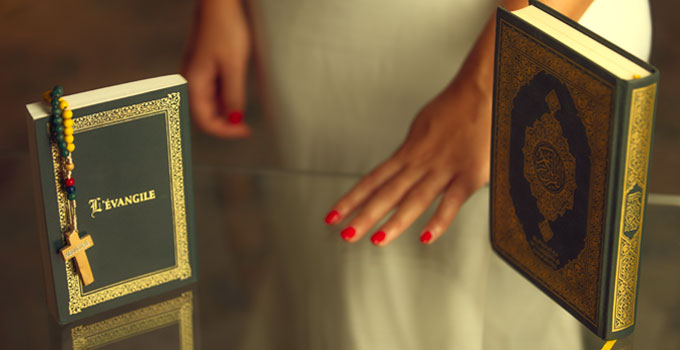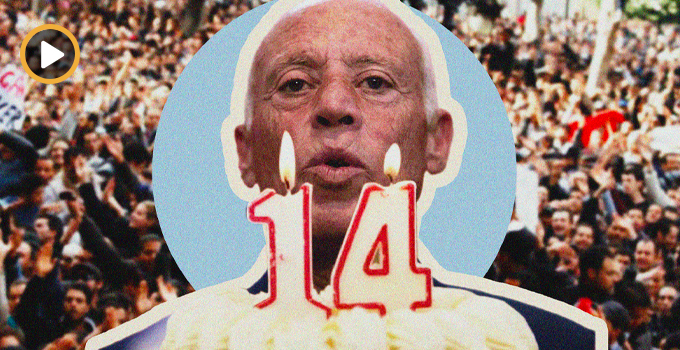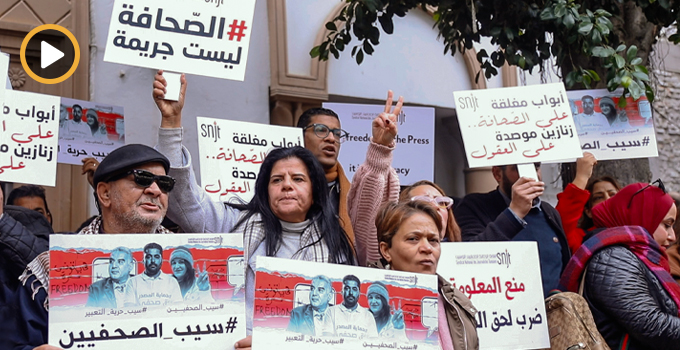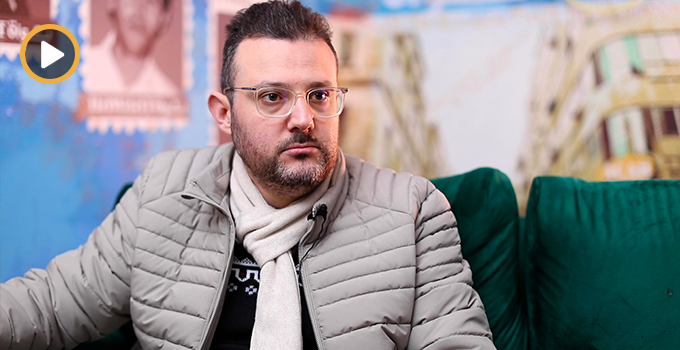In 2017, feminists touted the abrogation of a 1973 circular banning the marriage of a Tunisian woman to a non-Muslim man as a victory for all Tunisian women. Six years later, notaries and municipal authorities still refuse to accept this repeal, invoking Islamic orthodoxy to justify the application of religious law.
The overwhelming majority of notaries and many municipalities insist that the future husband of a Tunisian woman convert to Islam, observes Wahid Ferchichi, law professor and founder of the Tunisian Association for Individual Liberties (ADLI).
Marrying non-Muslim, a stroke of luck
To shine light on this trend, the author contacted a number of municipalities, presenting herself as a Tunisian woman engaged to a foreign national of Christian faith. Among those who responded, seven—Ariana, Bizerte, Korba, Kebili, Jendouba, Kerkennah and Kairouan—require a certificate of the future husband’s conversion to Islam.

« The law no longer requires this conversion, nevertheless it is advisable to provide this certificate in order to avoid any trouble », Nawaat was informed by an employee of the municipality of Jendouba. Our interlocutor in Kairouan was more direct: « Hopefully your fiancé is on the right path and will convert to Islam, otherwise you are committing a sin. A Tunisian man can marry a Christian woman, but a Tunisian woman cannot marry a non-Muslim man ».
But not all municipal authorities are on the same wavelength. The municipalities of Djerba Midoun, the Kasbah (Tunis), Hammamet and Tabarka affirmed that a certificate of conversion to Islam is no longer necessary as per the abrogation of the 1973 circular.
Nawaat also contacted a number of notaries in different regions throughout the country. Only one-third of them, the majority being women, indicated that they would accept to officiate this marriage.
In reality, any notary who initially claims to heed the circular’s suspension can recant at the last minute. This was Selma’s bitter experience. In 2022, engaged to a French national, the young woman hoped to sign a marriage contract during the ceremony organized at her parents’ home in Tunis.

She contacted three notaries. « In the beginning, they told me it wasn’t an issue if the fiancé had not converted to Islam. Then, two of them suddenly retracted, affirming that the body of notaries agreed that they must not heed the circular’s abrogation », Selma recounts.
Dhoha, from Sfax, also jumped through hoops to find a notary who would accept to marry her with a Christian American. « I was given the name of the only notary in the region known to accept marrying a Tunisian woman to a non-Muslim. That notary told me that this was no longer the case, in his efforts to avoid disagreements with other notaries ».
The young woman did some research and finally came across a notary in Tunis who consented to officiate her marriage. « But she did not refrain from belittling me, reproaching my decision to marry a man who is not circumcised ». Doha continues, indignant, « She made sure to let me know that she was doing me a favor ». Selma adds, « You are made to feel as though you are violating the law ».
Indeed, the National Association of Notary Chambers maintains a very clear position on the matter. « By no means are we bound by the abrogation of the circular of 1973 », says the organization’s secretary general, Kamel Ben Mansour, in an interview with Nawaat.
Different legal interpretations
For Ben Mansour, this refusal to heed the circular’s abrogation is « a stance held as a matter of principle ». Article 5 of the Personal Status Code (CSP) holds that two future spouses must not be subject to any « impediments as designated by the law ».
In the text’s Arabic version, the terminology used is « Sharia violations ». As Ben Mansour notes, « During the debate around interpretation of the expression ‘Sharia violations’, the Interior Minister enacted a circular banning civil registrars from officiating the marriage of a Tunisian woman to a non-Muslim man. It was thus agreed that the expression draws from Sharia law, which prohibits this type of union ».
« According to the hierarchy of norms, a law’s legal weight is greater than that of a circular. Consequently, it is the law—in this case article 5 of the CSP—whose application prevails », reasons Ben Mansour. He argues that any colleagues or municipal authorities who accept to establish this type of marriage contract do so mistakenly. « The only change imposed by the circular’s suspension is that the Grand Mufti is no longer the only authority capable of granting a certificate of conversion. The fiancé can even convert to Islam before a notary and in the presence of witnesses, and obtain a document as proof ».

The abrogation of the 1973 circular was not delivered as a simple announcement. Concerned ministries were notified, Wahid Ferchichi points out. These included the Ministries of Justice (for civil registrars including notaries), Foreign Affairs (for consular services) and the Interior (for local collectivities).
Different interpretations of the decision stem from the ambivalence of Tunisia’s legal system, in particular the CSP which oscillates between religious and secular registers. For Ferchichi, the position held by the National Association of Notary Chambers reflects a broad interpretation of the Code’s article 5.
Ben Mansour, on the other hand, considers that legal precedents nullifying the marriage of a Tunisian woman to a non-Muslim man serve to justify the Association’s position. In fact, Tunisian jurisprudence in this context is not consistent. At times, it follows Sunni orthodoxy on the grounds that « Islam is the state religion » as affirmed by the Constitution. On other occasions, it advances the principles of equality among citizens and freedom of religion which are also enshrined in the Constitution.
This tension between positive law and religious law will inevitably boil over, Ferchichi predicts. « Saied’s Constitution holds that the Tunisian state is responsible for ensuring the fulfillment of Islam’s objectives through the preservation of body, honor, property, religion and freedom. This provision can only serve to reinforce an interpretation which excludes the possibility of marriage between a Tunisian woman and non-Muslim man », says Ferchichi, his voice revealing concern. In his view, it is up to the administrative or judicial courts to come to a decision when notaries or municipal authorities refuse to officiate this type of marriage.
Hypocrisy over faith
Ultimately, the National Association of Notary Chambers’ directive instructing members to refuse to officiate the marriage of a Tunisian woman to a non-Muslim man did not prevent either Selma or Dhoha from getting married. They did, however, end up paying a higher price. « The notary, who generally receives around 250 dinars, asked for a thousand dinars », Selma tells us. Dhoha paid the notary who officiated her marriage 800 dinars, « in addition to having to put up with her multiple caprices », she adds in a bitter tone.

As it turns out, the notary refused at the last moment to travel to Sfax to execute the marriage. Dhoha was forced to celebrate at the notary’s office in Tunis. « First she said she did not want to have her picture taken during the party so as to keep a low profile. Then she stated that she wanted to be accompanied by a notary from the region. The latter wasn’t aware that my fiancé hadn’t converted to Islam. This was just a cover for her. Ultimately, she could not dupe this notary and decided to marry us in her office ».
Beyond the notaries’ exorbitant fees, Selma and Dhoha had to pay bribes to the municipal agents in charge of registering their marriage contracts at city hall. « Evidently this was part of a deal between the municipal agent and the notary », says Selma. The president’s decision to dissolve elected municipal councils and replace them with civil servants has produced fertile ground for this kind of administrative corruption, Wahid Ferchichi explains.
Whereas Selma and Dhoha persevered along a nuptial trajectory ridden with obstacles, others prefer a faster approach—even if it is built upon a falsehood. In 2023, Hana opted for her husband’s conversion to Islam in order to avoid « hassles », although this meant going against her beliefs. « It’s a formal procedure. I thought it would be better to go this route than risk being mistreated by notaries and municipal agents ».

Dhoha and her fiancé also considered this option. « Pretending to convert to a religion and changing your name just to get married is hypocritical, especially towards yourself », Dhoha remarks.
For some municipal authorities, the prerequisite of conversion to Islam is not a consideration. The most well-known of these municipalities are located in the northern suburbs of Tunis, Ferchichi informs us. A fact « which violates the principle of equality among men and women. It is ridiculous that women from the south of the country, for instance, must travel to the city hall of La Marsa in order to get married », he concludes.







iThere are no comments
Add yours